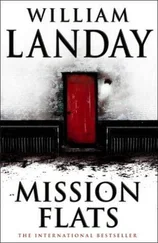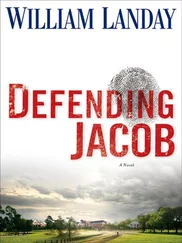William Landay - The Strangler
Здесь есть возможность читать онлайн «William Landay - The Strangler» весь текст электронной книги совершенно бесплатно (целиком полную версию без сокращений). В некоторых случаях можно слушать аудио, скачать через торрент в формате fb2 и присутствует краткое содержание. Жанр: Триллер, на английском языке. Описание произведения, (предисловие) а так же отзывы посетителей доступны на портале библиотеки ЛибКат.
- Название:The Strangler
- Автор:
- Жанр:
- Год:неизвестен
- ISBN:нет данных
- Рейтинг книги:4 / 5. Голосов: 1
-
Избранное:Добавить в избранное
- Отзывы:
-
Ваша оценка:
- 80
- 1
- 2
- 3
- 4
- 5
The Strangler: краткое содержание, описание и аннотация
Предлагаем к чтению аннотацию, описание, краткое содержание или предисловие (зависит от того, что написал сам автор книги «The Strangler»). Если вы не нашли необходимую информацию о книге — напишите в комментариях, мы постараемся отыскать её.
The Strangler — читать онлайн бесплатно полную книгу (весь текст) целиком
Ниже представлен текст книги, разбитый по страницам. Система сохранения места последней прочитанной страницы, позволяет с удобством читать онлайн бесплатно книгу «The Strangler», без необходимости каждый раз заново искать на чём Вы остановились. Поставьте закладку, и сможете в любой момент перейти на страницу, на которой закончили чтение.
Интервал:
Закладка:
The car yawed and hopped over the rocks. Stones clattered in the wheel wells and chinked against the bottom of the car. Here and there, Conroy had to slow to a crawl to avoid bottoming out on the debris.
Michael tried to gauge his location, but the streets had been completely effaced. So he surrendered to disorientation and simply gawked at what was close: the haystacks of two-by-fours that rose to four and five times the height of the car; the scraps strewn on the ground, concrete, metal, brick; the odd personal item, a mangled baby carriage, a shoe. And stones-stones everywhere, the same rocky untillable soil the ancient pilgrims had found here. He thought-as everyone thought and everyone commented, because the memory was so near, the comparison so irresistible-that it all looked exactly like the old newspaper photos of bombed-out cities in Europe. And this thought, too, led back to Joe. Joe who had marched across Europe all the way to Berlin, only to die here. Joe was dead.
“Who did it? Are there witnesses?”
“Yeah. But don’t you worry about that, Michael. We’ll get the guy. You worry about your family.”
“I should have done something, shouldn’t I? I don’t know; you know? I should’ve helped him.”
“Can’t think like that, boyo, can’t do that to yourself.”
“I should’ve-”
“Nothing anyone could do. Joe got himself into it. It’s nobody else’s fault. It’s over now anyway.”
Conroy picked his way over the rubble. In some places where the roads had been, the ground still bore their impression. On the ghost road of Chambers Street, he could move a little faster, briefly, until it vanished. He aimed the car toward the lights of Mass. General, tacking left and right around obstructions. Near the middle of the expanse St. Joseph’s Church stood alone, islanded. A hunkered-down Romanesque church-it looked more like a mausoleum for a secret society than a church. St. Joe’s had not been designed for splendid isolation. It was a city church, meant to be hemmed in by narrow streets. Now its plain sandstone walls looked unfinished. The car beetled past it and kept on, bearing north through the debris field.
“What do you mean, Joe got himself into it?”
“Huh?”
“Joe got himself into what? How do you know?”
“I just know, is how I know. It’s no big secret.”
“No? So who else knows?”
“Michael? Jesus, would you give it a rest? The hell does it matter now?”
As they neared the northern edge of the rubble field, the lights of Mass. General approached and, to the right, the JFK Park construction site. Construction was already under way on two of the apartment towers. Framed with I-beams that formed ladders and cubes in the air, the towers seemed impossibly high. Barely begun, they were already among the tallest buildings in the city.
Conroy jerked the car toward the construction site. The rear wheels spun out, and the car fishtailed. Rocks chunked off the undercarriage.
“The fuck, Brendan!”
“Hang on.”
“What are you doing! The hospital’s-”
Conroy skidded through an open gate into the construction site, among the skeletal towers. He drove clumsily, hampered by the darkness and the narrow beam of the headlights and the rough surface.
The car slid to a stop at the edge of an enormous pit which had been excavated for yet another apartment tower. A bubble of pale light illuminated the pit, cast by buzzing portable arc lights.
The buildings in JFK Park were named for famous local politicians, in keeping with the presidential theme. This particular hole in the ground would eventually become a tower called Adams. For now it was just a crater, about half the size of a city block and two or three stories deep. The foundation walls were not poured yet; the pit was lined with corrugated steel walls. A dozen I-beams rose above the pit like ships’ masts. These were the steel piles that would carry the weight of the building in the soft subsoil. A crane loomed, and a towering pile driver to ram them into the ground.
“What the fuck is this?” Michael asked. “What are you doing?”
Conroy bolted out of the car.
Michael saw a man walking toward them. Round-shouldered bull of a guy in mod slacks and short jacket zipped over a bulging belly. He tossed away a shovel.
Conroy dogtrotted around the front of the car, through the field of the headlights.
The second man produced a pistol from inside his jacket.
Michael struggled to connect these things, to make sense of it, but already the door was flying open beside him and Conroy was tugging on his arm saying, “Get out here, get out here,” and he heard this other man say, “Come on, get him the fuck out of there already. We don’t have all fuckin’ night.”
Michael dove toward the steering wheel and grabbed it, first the ridged plastic wheel and then the steering column itself, and he hugged it, held on. He heard himself say, “No! No! No!”
The second man came around the car to the driver’s side and smashed Michael’s hands with the butt of his pistol until Michael’s grip loosened and he was dragged across the bench on his belly, out of the car-his forehead banged against the doorsill-and he lay on the ground, shivering with cold and shock and fright.
Above him, Conroy grimaced like a man getting down to an unpleasant chore.
The second man was coming back around the car, crossing through the headlights as Conroy had a moment before, and-impossible-racking his pistol, and it was that sound, the metallic clack-clack of the slide that obliterated all thought and sent Michael scrambling ahead on all fours, toward the pit. It was impossible-impossible-impossible. It was just impossible to die. But Joe was dead. Is this what Joe had felt in his last moment, this frantic denial of one’s own annihilation-impossible!-together with a subsiding sense that one was already gone?
The man was coming on, the gun extended now in one hand, expressionless, mindless.
Michael clambered forward fast, beating ahead on hands and knees. The soil was cold and wet under his hands, it seeped through the knees of his wool pants. Pebbles bit his palms. Left hand, right hand, left hand, right hand, then he set his left hand down on-nothing-air-and the hand went down into the hole, and his arm and shoulder went down after it, then his head was pulled in too. The lip of the steel retaining wall scraped his belly and he tumbled over it, into the black space in the pit, and he was in the air, turning.
Conroy said, “Jesus. Get down there and finish this. For Christ’s sake. For Christ’s sake.”
The second man glowered. “Go finish it yourself, pig.”
“I’ve got a homicide scene to get to.”
Michael plummeted through darkness, wind drumming past his ears. The steel retaining wall invisible but perceptibly close; he could sense it beside him. There was a moment of weightlessness, no up or down-aware he was moving through space at fantastic speed, but with no sense which direction he was traveling. Where was the ground? He flailed, then stiffly he dropped through an atmosphere of thickening blackness and wintry cold.
Then the earth drove into him.
On the floor of the pit, thirty feet below the surface, gloom collected in corners and pooled at the base of the high walls. The darkness in these shaded places had a texture, a moist blue density so thick you wanted to dip your finger in it. Overhead, the steel piles tapered upward. The blue dome of the sky was illuminated from beneath by the city’s incandescent light, and some of that radiance washed back down into the pit, even reached the floor, weakly. But none penetrated as far as the corners.
The man with the gun foraged along the base of the steel wall. He paused, looked up its sheer face to estimate his own position and the spot where Michael Daley had gone over the side. He figured that the body ought to be here, right here at his feet, crumpled, dead or dying. But he must have gotten it wrong; again and again he looked up to recalculate. In the gloom, dim silhouettes came forward which might have been bodies in various back-broken poses. But each, upon closer inspection, turned out to be something else, a rolled-up canvas tarp, a toss-pile of debris, or nothing at all, just a wrinkle in the darkness. Shit, what he wouldn’t have given for a flashlight! Without one, there was no choice but to work his way along the wall, pausing now and then to crane his head forward for a better look or to nudge at something with his toe.
Читать дальшеИнтервал:
Закладка:
Похожие книги на «The Strangler»
Представляем Вашему вниманию похожие книги на «The Strangler» списком для выбора. Мы отобрали схожую по названию и смыслу литературу в надежде предоставить читателям больше вариантов отыскать новые, интересные, ещё непрочитанные произведения.
Обсуждение, отзывы о книге «The Strangler» и просто собственные мнения читателей. Оставьте ваши комментарии, напишите, что Вы думаете о произведении, его смысле или главных героях. Укажите что конкретно понравилось, а что нет, и почему Вы так считаете.












